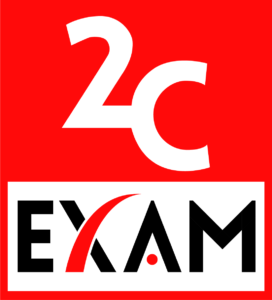Many people think that the coverage of the HKSI LE securities exam is broad, and we are here to help you. The following are 10 small tips to improve the efficiency of revision and enhance the understanding of concepts!
Improve Studying Efficiency
- Set goals during revision. You do not need to go through too many contents at one time, instead, you can break down the scope into smaller parts. This can not just assist you in time management, but also can increase candidates’ sense of success and gain more confidence in taking the exam.
- Practicing mock exam questions is absolutely beneficial for revision! The champions of public examinations such as the Hong Kong Certificate of Education Examination (HKCEE) and Hong Kong Diploma of Secondary Education Examination (HKDSE) definitely practice past papers. This is because inputting concepts (absorption of concepts) does not necessarily mean having the ability to output them (application of concepts). Let’s say, you know a lot of English words but sometimes they just slip your mind when you need to use them. The purpose of doing more mock exams is not to expect the same question to appear again in the exam, but to distinguish the way that the exam question editor considers so you can understand what answers should be selected in the real exam. With more practice, you can come into contact with many different question types, master the skills of choosing the most suitable answer (not necessarily the only correct one), and improve your exam performance. In addition, the allocation of time for answering questions will be grasped more quickly. Especially for calculation questions, to evaluate whether you understand the recited formulas or not, you must actually substitute the scenario-based questions and calculate at least once by yourself.
- Make sure you understand the concept before moving on. You can master the knowledge and apply it quickly in the exam only when you understand the relations, principles, cause and effect, and the underlying meaning. Don’t be afraid to spend time comparing different and similar concepts graphically or understanding the causal relationship behind them. Do it! Because the memory of the systematized content can be much longer-lasting than the rote learning memory, and it can be more easily retrieved.
- Don’t waste too much time on difficult exam questions. Many candidates lose a lot of points in their actual exams because they don’t want to waste every scoring opportunity so they waste a lot of time on the same question, or even use up time that is supposedly for the later questions. However, in this exam, the scores for each question are equal, so if you encounter a question you find it hard, choose a random answer, bookmark the question and then go back only after finishing the whole paper. With some luck, you may even find hints between the lines of other questions.
Question Answering Skills
- Look out for words with high certainties, such as “all”, “none”, “all”, “none”, “eliminate”, “exempt”, “only”, “solely”, “exclusive”, “wholly”, “merely”, “impossible”, “never”, etc. There are exceptions to many situations in the world, so most of the times there is no “only” or “all”
- Use the substitution method. If students feel confused when taking the exam, they can substitute technical words into everyday examples. For example, if the question asks whether all banks are registered institutions, you can substitute some smaller banks in Hong Kong. For example, the newly emerging virtual banks ZA Bank and WeLab Bank who have not participated in the securities business.
- Fit your shoes in the perspective of the regulator. For example, regulators in Hong Kong don’t really care whether your company is making money or losing money, or whether your company’s fees are the second cheapest or the fourth cheapest in the industry. Instead, they will pay attention to both the internal and external documents, regulations, and conflicts of interest.
- The most important condition constituting the definition of regulated activity is that the activity is a paid service and is carried out for a third party. If there is no charge involved, as in what stock people recommend for their spouse to buy or sell, then there is no need for a license. Another example is that you are accepting the salary of a company to carry out your duty to conduct proprietary transactions for the company, meaning you are trading on behalf of your company as a representative of your company, and since there is no third party involved, it is not a regulated activity.
- Dealing or advising to fulfil a professional function of a certain profession is not a regulated activity. For example, a lawyer suggests that you sell stocks while the market is booming out of the intention to organise your property. Due to the needs of the lawyer’s duties, the lawyer can be exempted from applying for a license and this suggestion is not defined as a regulated activity. In addition, there is no need to apply for an additional license type for wholly incidental activities carried out by a practitioner. For example, a broker who only has a type 1 license can still give some advice to the client when placing an order for a client IF there is no additional charge. Although providing advice at this time is another type of regulated activity, as long as the broker does not accept benefits from the client for the opinion, it is a wholly incidental activity. The licensee does not need to apply for a type 4 license for such action.
- The SFC has the power to investigate ANY person or institution. Can also intervene in civil proceedings.
How can we help?
2CExam provides HKSI LE, IIQE, EAQE and SQE related exam preparation materials. We sell mock question banks for HKSI LE Papers 1, 2, 3, 5, 6, 7, 8, 9, 11, 12 in Chinese and English; and bibles for HKSI LE Papers 1, 2, 6, 7, 8 in Chinese. We also offer 1 on 1 tutorial services. Besides, we have also made free tutorial videos for HKSI LE Papers 1, 2, 6, 7, 8, 11, 12 and posted them on public channels such as Youtube/ Bilibili/ Tencent/ Iqiyi. 2CExam has been an exam training expert for years. Should you need any help please visit www.2cexam.com.hk or contact us through:
Phone +852 2110 9644 Email: [email protected] Wechat: hk2cexam WhatsApp: +852 9347 2064
Please support us by leaving comments and likes if you think this article helps you!
You can scan or click on the QR codes to visit our social media.
Latest Article
Categories
過往文章
Contact US
-
Phone:
+852 2110 9644
-
Email:
-
WhatsApp
+852 9347 2064
-
WeChat
hk2cexam
Interesting Articles
Is the HKSI paper-based exam or the computer-based exam easier? Which is better to partake in?
Many people are curious about the differences between the HKSI LE’s computer-based exam and the paper-based exam. As per the two exams’ content, they are pretty much identical. The two exams use the same Study Guide, the exam questions are drawn in the same question bank. Some people say that they have taken…
What are the differences between a computer-based and paper-based exam for the Estate Agents / Salespersons Qualifying Examinations?
There are differences between the computer-based exam and the paper-based exam? Some people say that the computer-based exam / paper-based exam will be easier? Many people are curious about the differences between the EAQE/SQE’s computer- based exam and the paper- based exam. As per the two exams’ content, they are pretty much…
What is the difference between the computer-based exam and the paper-based exam of the Insurance Intermediaries Qualifying Examination
Many people are curious about the difference between the IIQE’s computer-based exam and the paper-based exam. First of all, IIQE does not hold many paper-based examinations. In many cases, it will only hold paper-based examinations for Paper 1. If you have special needs, such as not being proficient with computers, or having a vision…
What are the differences between the computer-based exam and the paper-based exam of the Licensing Examination for Securities and Futures Intermediaries (LE)?
There are differences between the computer-based exam and the paper-based exam? Some people say that the computer-based exam / paper-based exam will be easier? Many people are curious about the differences between the HKSI LE’s computer-based exam and the paper-based exam. First of all, HKSI does not hold many paper-based examinations. In many…
Which Licensing Examination for Securities and Futures Intermediaries exam paper should I partake in?
If you want to work in the front line of the securities industry, you have a good chance of needing to take The Licensing Examination for Securities and Futures Intermediaries. As for what test papers you need to take, first of all, you need to know that the number of the exam paper has…
If I have an overseas professional qualification, can I obtain a SFC securities license simply by recognising my prior qualification
Some students have worked in the securities finance industry outside of Hong Kong, and now they also need to obtain a securities business license in Hong Kong. Can work experience in the securities industry abroad help you waive the exam and allows a candidate to directly apply for the securities license from the Securities…
In order to obtain exemption from the HKSI LE exam or SFC’s academic requirement, how is relevant industry experience considered?
After reading the “Competency Guidelines” issued by the Securities Regulatory Commission, some students may have a big question mark on “Relevant Industry Experience”, “have X years of experience in the past X years”, and then ask us what kind of experience are counted as industry experience so they can be exempted from the Licensing Examination…
Which insurance intermediary qualifying examination paper should I take?
If you want to work in the front line of the insurance industry, you have a good chance of needing to take the Insurance Intermediaries Qualifying Examination (IIQE). As for what exam papers you need to take, first you can check whether you meet certain conditions to be exempted from specific exam paper combinations…
The difference between IA Responsible Officer(RO) and technical representative (TR)
Regulatory Organisation Before explaining the difference between Responsible Officer and Technical Representative, you must first know that there is only one regulatory agency that regulates companies engaging in insurance business: the Insurance Authority (IA). All the powers concerning licensing matters, supervision tasks, sanctions and investigations of intermediaries of insurance intermediaries, insurance companies and insurance…
The differences between a SFC Responsible Officer (RO), HKMA Executive Officer (EO) and a Sale Representative (Rep)
The different regulatory agencies Before explaining the differences between a responsible officer (RO), HKMA’s executive officer (EO) and sales representative (Rep), you must first know that there are two regulatory agencies that regulates companies that are engaging in securities business: the Securities and Futures Commission (SFC) and Hong Kong Monetary Authority (HKMA).The regulatory…







